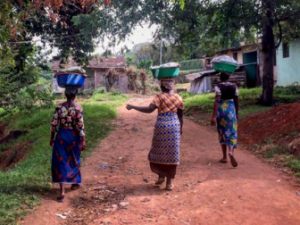“That’s a dominant narrative within the international development sector, that ‘child marriage’ happens because daughters are forced to marry at young ages for their parents’ financial benefit and that marrying early is fundamentally harmful to the girl’s wellbeing,” said Susan Schaffnit, a postdoctoral scholar in UC Santa Barbara’s Department of Anthropology. “But surprisingly little research has explored local peoples’ perceptions of early marriage or directly tested whether parents gain and daughters suffer from marrying under 18 years.”
In a pair of papers, lead author Schaffnit and David Lawson, a UCSB assistant professor of anthropology, report on a study of the timing of marriage, bridewealth payments (transferred from the groom’s family to the bride’s family) and women’s wellbeing in rural Tanzania. The papers are published this month in Nature Human Behaviour and in Sexual and Reproductive Health Matters.
Related Link:
News Date:
Monday, February 18, 2019
February 21, 2019 - 8:39am







